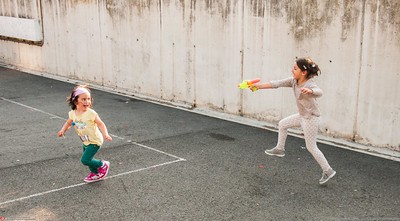Because parents of school-age children are all busy homeschooling, I share the tips that will make learning at home a little smoother. So you can teach your kids at home in handy ways and full of fun.
How do we keep our children focused, how do they stay motivated? And above all: how do we keep it fun?
How to teach our kids at home?
Here we go…
1. Compliment
Compliment your child on what he or she is doing.
“I see you are drawing beautifully.” And not: “What a beautiful drawing you have made.”
Because in the latter case you are talking about the result, while the energy and love that your child puts into something are much more important.
2. Provide a good basis
I understand that you take teaching your kids seriously as a parent, but don’t go to school, you are not a teacher.
Keep the atmosphere in the house as it should be: safe and familiar. But first, make sure you have a good foundation. And listen to your child.’
3. Teach your child to think again
‘Talk to your child about this crazy time: what is going on and what has changed for us?
Feel free to mention what is not pleasant: “You no longer have football matches, we are not going away that weekend…”
Also let your child tell you what has changed in a positive way: that they can go to bed later, you play games more often and that mom and dad are at home more often.
4. Let children help
‘Sometimes I sit in the classroom and think: what a mess. Then I say, “Guys, who could help with what? What can you do and what can you do?”
Children really want to do a task.
If only they could choose for themselves. For example, between vacuuming and unloading the dishwasher. If you say: “We are all at home all day. What could you do to help?”, then you take the child with you.
5. Use ‘games’ as a variation
Once my students came in very restless, so I went for a run with them. After that everyone was on point.
At home, you can do an energizer with your child; an assignment that provides variety. You release energy with it and ensure that they can keep their attention again.’
Children can not sit still for very long. Brainbreaks and energizers are a kind of ninja workouts; the more you do them, the better you get at them.’
6. Offer structure and be consistent
If you want children to pay attention, you have to ensure that there is structure. If I say A in class and we do B, it won’t work.
If I explain something clumsily, no one follows. Providing structure, being clear and consistent, works best.
7. Switch roles
To teach your kids, this is an awesome role… “let your child teach you”.
A nice game to get to know your child on a different level: what knowledge is available at home? Where are the interests?
This is possible with frameworks, for example, aimed at language or mathematics, but that is not necessary. Nice for a change.’
8. Take a good look at what your child needs
If a child is restless, it is usually a sign that he or she does not understand the teaching material. Or at least not enough time to understand.
Do you sense that unrest? Then, as a parent, look for those small intermediate steps that your child needs to understand the teaching material.’
9. Solve things with humor
Dare to joke, you don’t have to be serious all the time to teach your kids. That is not always the case with teachers in the classroom, that would be very boring.
When a student makes a nasty comment, I sometimes think: I’m going to make a joke of it so we can continue. You can also apply that at home at times when you might otherwise become angry.’
10. Make a party
When the weather is nice, sit in the garden or on the balcony with something tasty or – in bad weather – on a rug in the living room and do the exercises together.
Think of it as a refresher course for yourself: do you remember what an adjective is and how to calculate with fractions? Realize that it is unique that you are allowed to teach your child and use this period to strengthen your bond.’
11. Don’t forget that they have to move
At school children have a break in the morning during which they almost always go outside. Make sure they get it now.
The way for children to clear their heads so that they can absorb something afterward.
Children learn with their whole being, not just with their heads. During that break, jump rope with them or let them play football in the garden.’
12. Plan
During my trip, I learned to really take time for myself. Not an easy task because, just like now with the quarantine, we were together 24 hours a day.
My tip: get up an hour before the rest of your family wakes up. Do yoga and breathing exercises, meditate or walk if that’s more your thing. Then you can really be there for your kids.
Only if you take good care of yourself, you can give your best.













